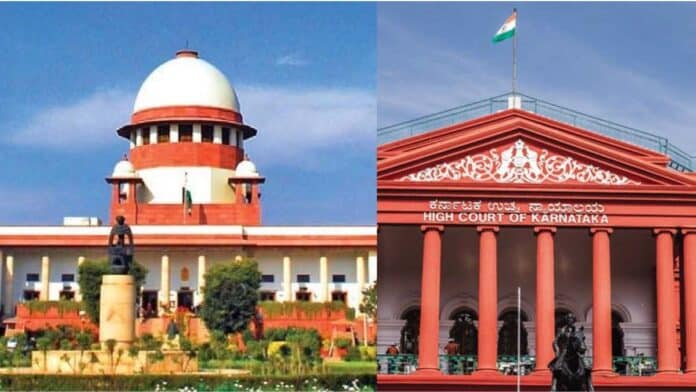The Supreme Court on Thursday dismissed a contentious plea requesting an investigation into Justice M. Nagaprasanna’s decision to recuse himself from a series of cases at the Karnataka High Court. The bench, comprising Justices Abhay S. Oka, Ahsanuddin Amanullah, and Augustine George Masih, strongly criticized the petition, suggesting that it could send the wrong signals and questioning the petitioner’s motives.
The petition, filed by Advocate Vishal Arun Mishra, aimed to not only investigate Justice Nagaprasanna’s recusal but also establish broader guidelines for judicial recusal. The judge had opted out of cases involving potentially sensitive allegations against the family of the Karnataka State Lokayukta, which included calls for criminal complaints and a court-monitored investigation into corruption.
During the hearing, the Supreme Court expressed concerns over the implications of probing a judge’s discretion to recuse, emphasizing that such actions could undermine the judiciary’s independence. “Look at your prayers. How can prayer B be pressed? What is this? This will send wrong signals,” the court noted, referring to the specific requests made in the petition.
Justice Oka further questioned the implication that judges could be influenced unduly, remarking, “Are the judges also so weak in your view? Do you think the Lokayukta can influence judicial outcomes? The writ has been filed in an oblique manner, and we are uncertain about the motivations behind it.”
Justice Amanullah added that probing the discretion of judges was not feasible and could impact the integrity of the judiciary: “The entire Karnataka judiciary will be… Is it feasible? We are prima facie not satisfied. You may have some lofty grounds, but we cannot probe the discretion of the judge.”
The court ultimately allowed the withdrawal of the petition but noted it contained several objectionable elements. It also left open the question of whether it would be appropriate to establish any guidelines for judicial recusal, indicating that while the procedural aspect might merit consideration, this particular petition was not the right approach.




